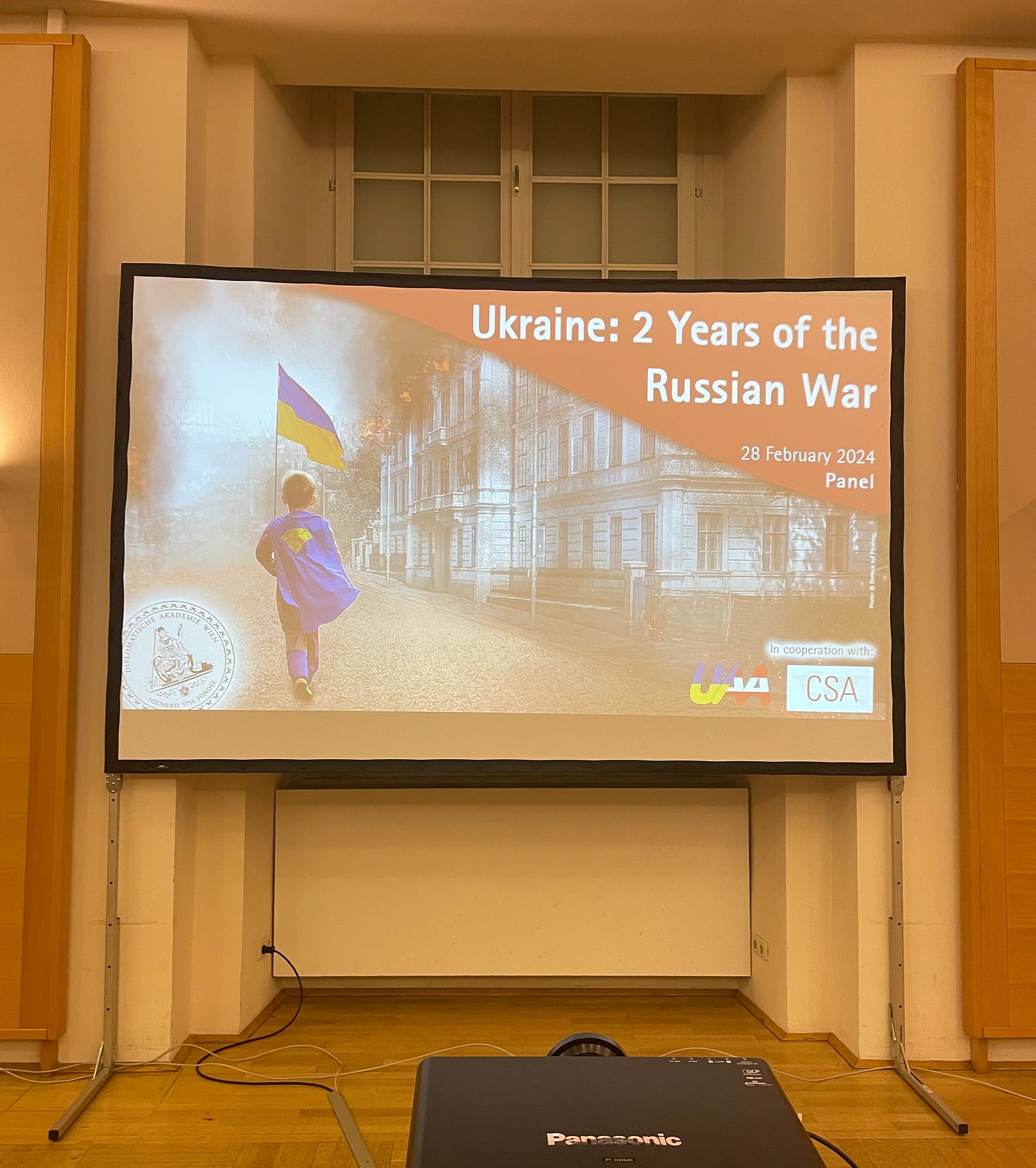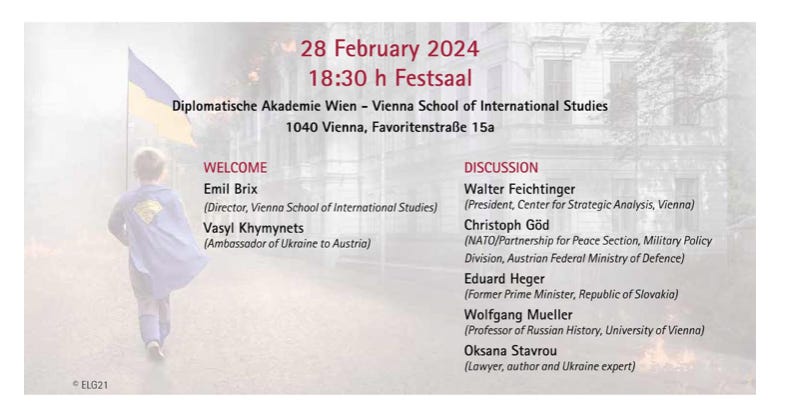Past, present and future
This week I visited an art exhibit looking at Ukraine's past and heard a lecture speculating about the country's future.
Last night I attended this quite interesting discussion by a group of respected experts in their fields (including the former prime minister of Slovakia who, compared to most Austrian politicians these days, was extremely open, frank, charismatic, and spoke excellent American-English). The host, a former Austrian ambassador to both UK and Russia, made quite clear what he thinks of official Austrian neutrality and the fact that the country’s “strategic defence plan” (something like this) which was due to be revised by the end of 2023 is still outstanding. While some of panelists mentioned that Russia had failed to hold Europe hostage via gas, because much of Europe simply started buying non-Russian gas, it was weird to be sitting in Vienna which has done none of that. Austria’s energy minister said on national television the other day that she, in fact, has not seen OMV’s contract with Gazprom. The Austrian state still holds 31% of OMV’s shares.
The Ukrainian ambassador to Austria provided opening remarks, which he read in English (you can tell he is more comfortable conversing in German). He is a passionate patriot, but at times I would wish for a little less party line and a little more reflection of the reality and seriousness of the situation right now on the ground in Ukraine. Many of the speakers who followed highlighted this: that Ukraine is now doing Europe’s fighting for Europe, for all those who seek to defend democracy and western values. The U.S. was hardly even mentioned, very much a sign of the times. Europe knows it is on its own. Now the big question is how to come together and act accordingly. Mr. Feichtinger mentioned he had been in India last week, and elaborated on why so much of the “global south” is, if not openly pro-Russia, rather neutral to the entire war. As someone in India told him: the war in Ukraine has actually been a positive thing for us.
I left with a strange feeling of unease. On the one hand, everyone talked about how important it is for European societies to realise Russia is in fact waging war on all of us, to understand what is really at stake now. To not make decisions based on “fear and anger”, because that is exactly what Russia is trying to stir up with its hybrid warfare and use of information propaganda in the west. On the other hand, I know just how hard it is within Ukrainian society to find people still willing to die on the front for these principles, and I genuinely ask myself how many citizens of Europe would be willing to die just to not live under Russian rule. I am not sure the answer is as straightforward as many would think. What does democracy mean for most people? The right to elect their leaders. Is that number one of ordinary people’s agendas? Probably not, as most of us in our lifetimes have not lived under dictatorships. Some folks look at photos from Moscow, like Tucker Carlson, and say wow that looks nice. And then they ignore the part about elderly people being jailed for years over a Facebook post. The compromise which most people in Russia (who stayed) have made is one that maybe many Europeans would make too. I think that also needs to be addressed. I really do think Russia could quietly amass a lot of influence within Europe without even firing a shot. For many people, personal wealth and standard of living is far more important to them than some abstract concept of democracy and freedom. I think this is where Europe has to be careful. Russia needs to be such an outcast from the western financial and economic system that leaning towards it would be seen as detrimental for a country from a standard of living perspective. Much like communism didn’t sell because people could easily see they were lacking what middle class citizens in the west had access to.
In summary, it was really inspiring to listen to so many intellectuals on stage share both their worries and grounds for optimism in the long-run. Former prime minister Heger talked about this fight as a fight for our kids and grandkids. Arguments like this could resonate with a broader population if made correctly. But more and more I think the average person’s attention span isn’t thinking beyond their next vacation. And of course I cannot see the war as an abstract thing, I am constantly thinking about the reports I have read from the front, from the horrors taking place when one side can fire multiples of ammunition and the other has nothing to fire back, I am thinking abut the human price of this war, of all the families who have lost and will never be the same. Of the kids whose lives were forever changed, and certainly not always for the better. Coming to Europe is not a panacea, especially when you had a decent life in Ukraine. The practical implications of all of this keep racing through my mind.
Prof. Müller made a very interesting point. He explained how Austria is actually paying for Russian gas twice. The money Austria spends on buying Russian gas goes directly into the Russian war machine, and Austria will also one day be on the hook to contribute towards EU reconstruction of Ukraine. He reiterated that Austria spends multiples more on Russian gas than it does on Ukraine aid at the moment. It is all so maddening and then you have an energy minister who says she hasn’t even seen the contract, and after two years of war is only now calling the whole arrangement into question, publicly. But yet, her hands are tied, because shareholder-owned company, etc etc.
If Europe really does get its act together, and it might just do that, it certainly will not start in Vienna. We may be the last to be invited to the party. After all, Austria’s prime minister has some truly ridiculous suggestions like getting the BRIC countries to bring Russia to the negotiating table (what, I ask, negotiating table is he even talking about?!) and western politicians know that when you tell Austria something it gets back to Russia quickly.
And at the moment, if you don’t consumer local news here, it has been entirely focused on irrelevant, domestic drama, like a court case against former chancellor Kurz and a close advisor (they were handed sentences for untruthful statements but do not actually have to go to prison), and a discussion of a city council meeting in Salzburg during which politicians from several political parties, including a local communist, discussed for several minutes whether or not it was ok to call each other “comrade”. Yes, really. Can’t make it up but it is all very banana republic vibe and makes you wonder what in fact they are all getting paid for. Because at this very moment I am still receiving requests for supermarket gift cards from refugees who have been living in a hotel in Salzburg for nearly two years, and only receive €40 per month pocket money, and are now being asked to “pay back” the equivalent of their Ukrainian pensions.
This week I sent out the last of my Hofer cards, and am still receiving requests. I am once again building a waiting list, explaining I do not know if/when we will have more. This feels like the most honest policy. These are mostly moms with kids stuck in social housing in small towns with little access to transport nor jobs, many of whom are also on this €40 per month scheme. It is heartbreaking, and yet no change is on the horizon. There was an open letter sent by a group of NGOs recently. Not that it will make any difference. The politicians do their thing (nothing), the NGOs pretend to protest, and in very Austrian fashion, nothing changes. As I said in my last post, the only real exception to this are the Neos, who have been publicly very strong lately in trying to counter Russian disinformation and narratives. I applaud them for not giving up while so many are “tired of the Ukraine topic”. Imagine how tired Ukraine is.
Last weekend, I visited the Belvedere to see a new exhibit on Ukrainian modernism. It was wonderful. Curated by a group of Ukrainian specialists, it explains Ukraine’s history through art. So much of the past reminded me of the present. Prior to 1917, many great Ukrainian artists had to go abroad to study. They travelled to Vienna, Paris, Krakow, and then returned home to produce art applying what they had learned in Europe’s capitals. Others studied in Moscow and St. Petersburg. This tug between west and east was present then, too. During the Soviet era, Ukraine got its own art academies, but the Soviets tried to “russify” the works, as if to create a single Soviet identity of all working artists. The exhibit itself is varied, and organised by geography, which I found really interesting. They are also hosting some guided tours with the curators in Ukrainian, which I shared with my Telegram group. Thankfully, there is a program in Austria which offers free museum entry to low income families, including Ukrainians now here.
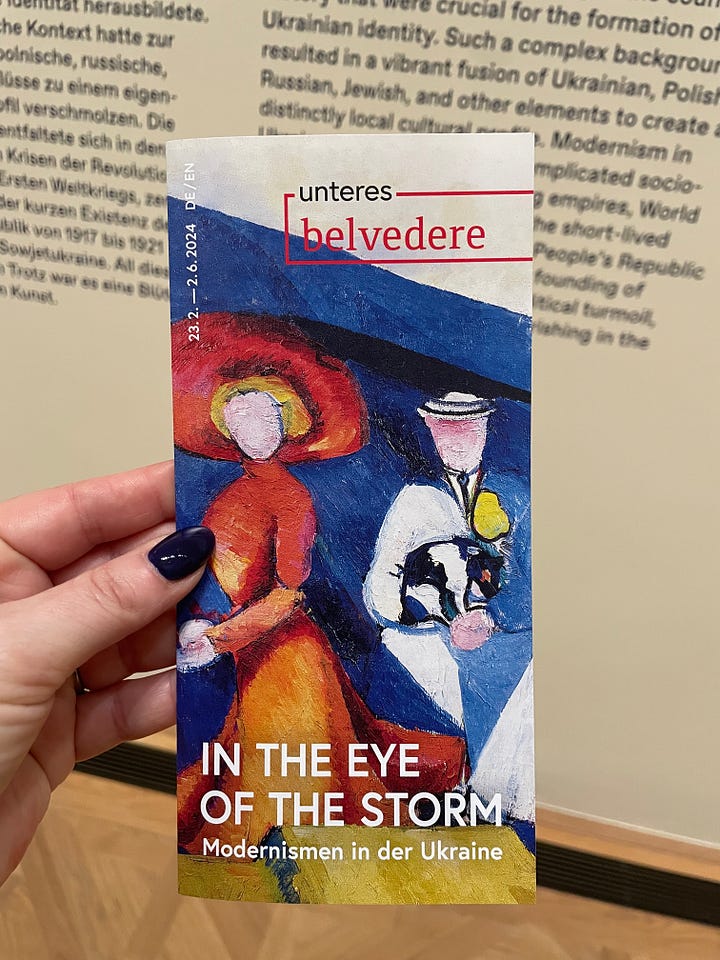
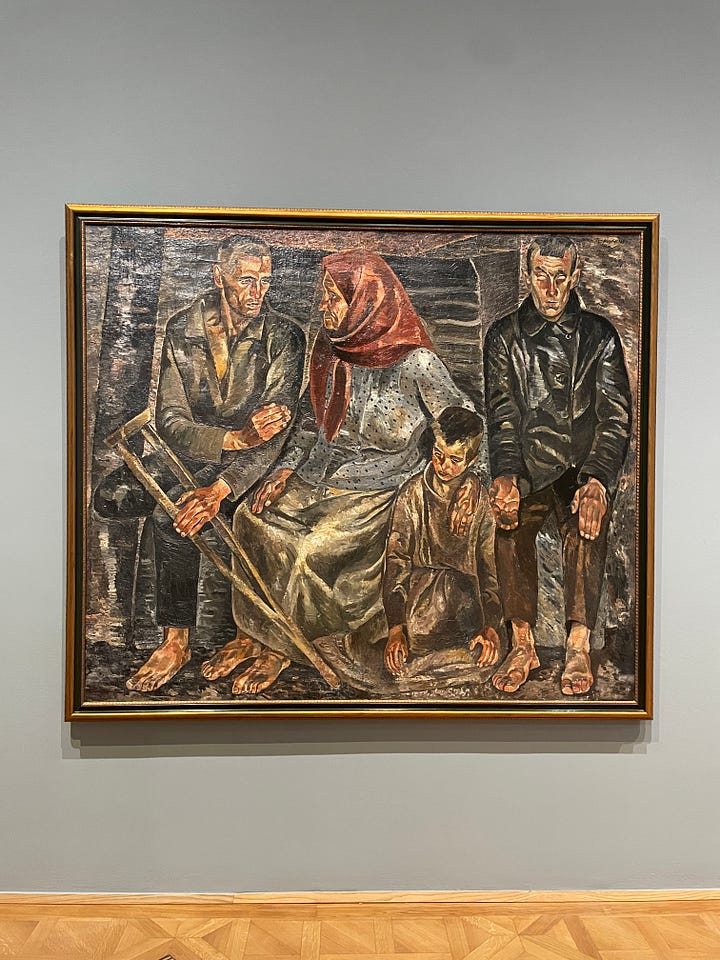
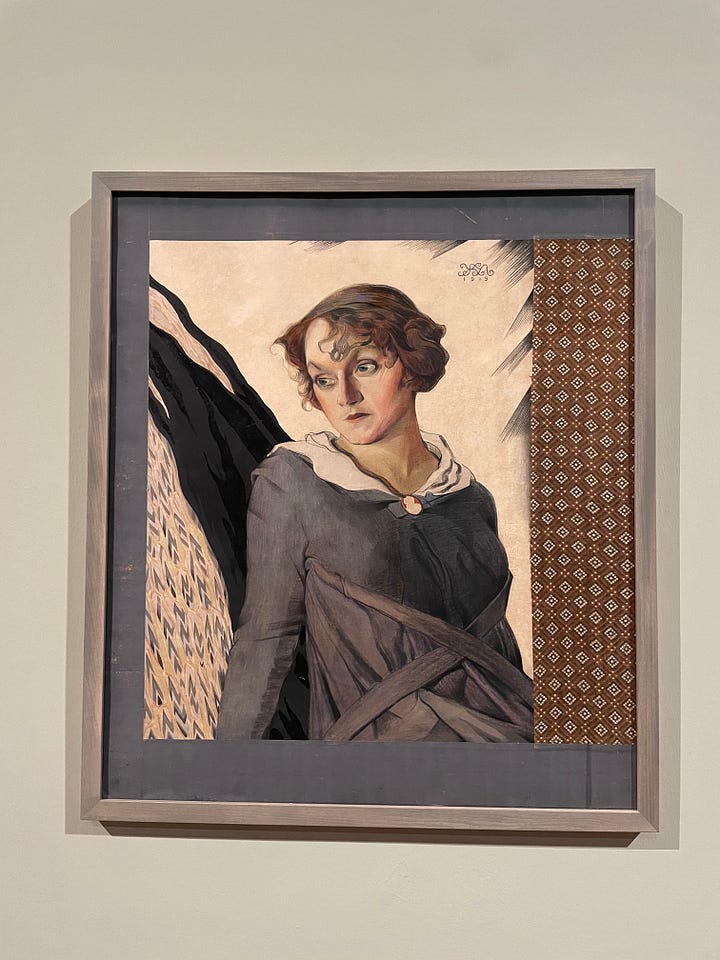
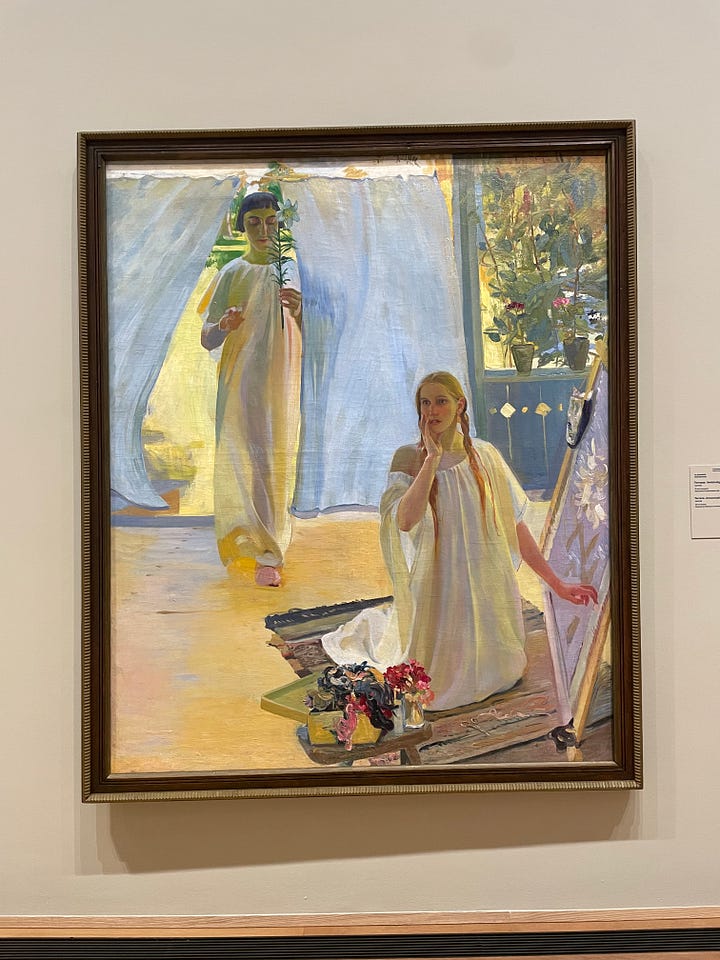
Putin is making some big speech today. I wouldn’t even bother to listen. They keep arresting good people in Russia by the hour. Just when you think it cannot get worse, it does. Navanly’s funeral is scheduled for tomorrow in his former Moscow neighbourhood, a bedroom community in the southeast of the city. There are already videos circulating on social media warning young people not to go.
Here in Vienna I am still fielding all sorts of questions, from advice on schooling to doctors. And I add to my waiting list. I don’t know how much longer Cards for Ukraine will be able to continue to raise funds, but unfortunately, the need is still very much a reality.




